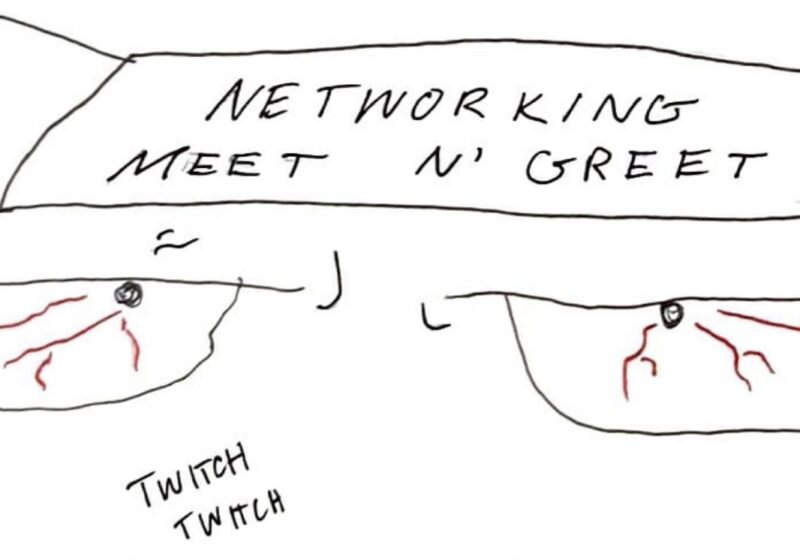The word “networking” often sends chills down my spine — usually in a dreadful way. This word simply clashes with my personality, and if I could, I would never do a single thing that has anything to do with this word ever again. But of course, networking is currently one of the only ways to seize big opportunities, whether that’s being able to shadow a neurosurgeon at a hospital or an internship in DC.
Networking, defined as “the process of making connections and building relationships,” seems to characterize a good bulk of events hosted by many organizations on campus. And at these events, I walk in with a friend, I sit down, and I listen to these professionals or graduate students answer prompts and Q&As about their career. And then I leave, satisfied from having gained insight on what it means to be in that specific field. As I leave, I turn around and see undergraduate students chatting with these professionals, whether small talk or asking questions, and I get a little envious.
In this day and age, merit is not enough. We study at a competitive university; we’re in a competitive world. In a 300-person class, you’re likely not going to be one of the few that does well in the class. Professors aren’t going to notice you just because of your grades. And this is typically where networking comes in. You connect with the professors at a more personal level and the next thing you know: “Hey, my colleague is open for that shadowing position you wanted. Would you like me to send them an email?” And there you have a shadowing position.
As someone who doesn’t have great conversation skills, the idea of small talk is daunting. What do you mean I should just go to a professor’s office hours and have a chat about their life (granted, you should probably lead with questions about their class)? We emphasize making connections with professors so they can write you one hell of a recommendation letter. We emphasize talking to professionals so you are one of the first on their lists when they have an opportunity open up. And I think that’s a great way to receive opportunities. But this isn’t going to work for everyone. We place so much emphasis on networking that it doesn’t really matter what you know anymore; this creates disparities that leave many individuals behind. Connections are formed from the time you were born — like being born to an upper-class versus lower-class family.
As I’m hustling through the seven seasons of “Gilmore Girls,” I can’t help but be amused by the Gilmore grandparents’ lifestyle — having tea with different committees and luncheons with bigshot lawyers and CEOs. They have connections for everything; and part of that is because they’re a part of the upper class, having connections to everyone in their little rich-friend circle who also have extensive connections. With connections like these, it is exponentially easier to receive opportunities. Compared to those that grew up in, for example, an immigrant household without a history of connections — who also may not have time to be at social events to network — these individuals end up in the shadows. Their merits may be applauded in some aspects, but would they receive the same things as someone who has these big connections? Likely not.
I grew up in a household that valued merit and hard work, and with the belief that if I worked hard enough, everything would pay off. But as I wiggle my way into society, it seems like every opportunity depends on who you know, rather than what you know. Because of course, anyone can learn the skills, but not everyone can have these connections. This is how you navigate the current world.
In addition, no one teaches you how to network. Networking comes naturally to some people and not as much to others. Oftentimes when I’m in a conversation with multiple people, I feel more like an audience than an active participant; and typically, all I can muster is a smile and a nod.
Networking is an important skill to have in life. But I wish that less emphasis is placed on who you know, but what you know. This could push people to be better in their field rather than having to settle for mediocrity. But in the meantime, I guess it’s time to put on my big-girl pants, some black loafers, a black blazer, and start networking.







